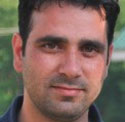Imams: From Passive Preachers to Active Reformers

By Suhail Ahmad
April 17, 2015
There has been an exponential increase in the number of mosques (Masjids) in Kashmir over the years. Their role, however, has remained more or less limited to prayers. As a result, we have not seen the Masjid emerge as true centres of reformation to combat the myriad challenges facing the Muslims of Kashmir.
A Masjid is not merely meant to serve as a place of worship. It is a place to impart moral values and to guide the community on day-to-day affairs at both individual as well as collective level in the light of Shariah (Islamic tenets based on Quranic teachings, sayings and practices of Prophet Muhammad S.A.W). A Masjid is meant to serve as a beacon of hope in every walk of life, especially as Kashmiri Muslims find themselves in helpless situation on several fronts. Upholding the real essence of Islam as a way of life, Masjids can also prevent exploitation by the self-proclaimed guardians of the religion.
Given the centrality of a Masjid in the life of Muslims, clerics (imams) assume an important role in the community.
Imams can act as change agents, bringing far reaching reforms in the society. However, as one looks around, their role has also been restricted to leading prayers, Friday sermons, solemnising marriages and conducting burial services. Infact even in Friday congregations, not many imams make the contemporary issues the subject of their sermons. There is a need to make a conscious effort to relate the modern day problems facing the Muslims with the Islamic traditions and teachings.
The imams have ample opportunities to interact with people, both inside as well as outside the mosque, and inculcate a sense of responsibility towards the community. A responsible Muslim, groomed by the guidance of responsible imams, can be instrumental in improving the socio-economic status of the community. As a major pre-requisite in this regard, imams need to have an understanding of contemporary political, economic and social concerns. They also need to be driven by a strong commitment to find solutions rather than act as passive preachers. At the same time, the community also has a responsibility to take care of the genuine needs and expectations of imams in terms of salaries or other facilities. Many imams still draw meager salaries which may come in the way of their role as reformers. To encourage them for a more pro-active role, it is important that their basic economic needs are taken care of.
One of the most disturbing aspects of the religion right now is the sectarian divisions being propagated by various groups. In some instances, the imams encourage sectarian conflicts. On several occasions, I heard imams of some mosques delivering provocative speeches against particular sects. Islam preaches brotherhood and harmony, but black sheep create divisions among the Muslims in the name of religion.
Myopic understanding of the religion coupled with sectarian prejudice makes these “custodians” of religion the most dangerous enemies of the Muslims. They routinely indulge in exaggeration of minor differences between the different sects and magnify them out of proportion. In the process, they pose as the saviours of the faith.
They focus on trivial issues while ignoring the burning problems just to hide their incompetence to guide the community. Gullible Muslims fall prey to their ill-informed advices and admonitions. Sometimes, they act like the politicians looking to safeguard their narrow interests rather than the interest of the community.
The imams are not just meant to deliver speeches. They can and they should also look to engage in practical social work.
Maulana Waris Mazhari has listed some important issues regarding the role of imams in India. His observations on “The Role of Imams of Mosques in Social Reform” have been translated from Urdu by Yoginder Sikand.
Maulana points to the neglected issues like caste-based discrimination among the Indian Muslims as a consequence of “erroneous interpretations of the concept and rules of kufu or social parity that relate to marriage”. This, he notes, has made a complete mockery of Islam’s preaching on social equality and brotherhood. He refers to the sectarian rivalry “that has completely destroyed the unity of Muslim society”.
Another burning issue raised by the Maulana is the “misuse of religion for worldly purposes”. He points to the violation of Islamic ethics in seeking donations for institutions like Madrasas. Founding new madrasas, he writes, has become a virtual industry. “A major portion of money collected by way of zakat is given to madrasas, because of which other vitally important institutions such as hospitals, schools and colleges, orphanages, and social welfare organisations catering to the poor and the needy, are left starved of funds,” he asserts.
Maulana Waris cites poet Mohammad Iqbal to express his dissatisfaction with the status of imams:
“Qaum kya cheez hai, qaumon ki imamat kya hai?
Is ko kya janey yeh becharey do rakat ke imam?”
(What is a community, and what does it mean to be the leader of a community? What do the mosque imams, who lead [their congregations in] just two rakats of prayer know of this?)
Suhail Ahmad is an avid reader and writes on varied subjects. Feedback at suhail@risingkashmir.com
Source: http://www.risingkashmir.com/imams-from-passive-preachers-to-active-reformers/




 Moderate Islamist here
Moderate Islamist here


0 comments:
Post a Comment